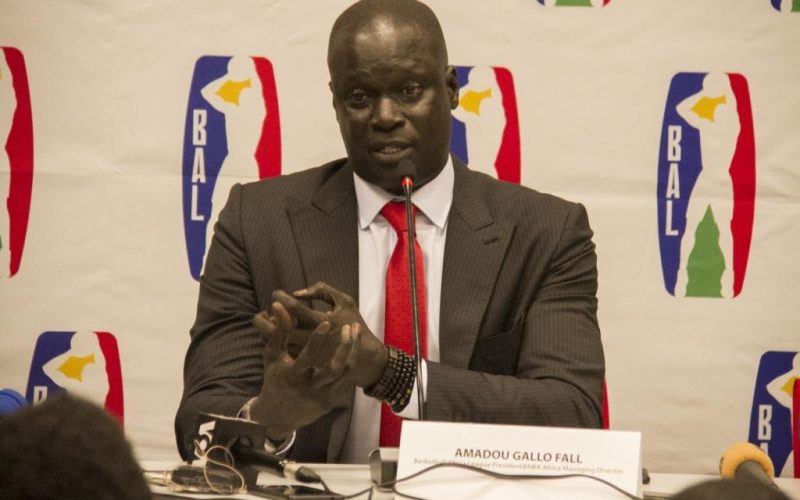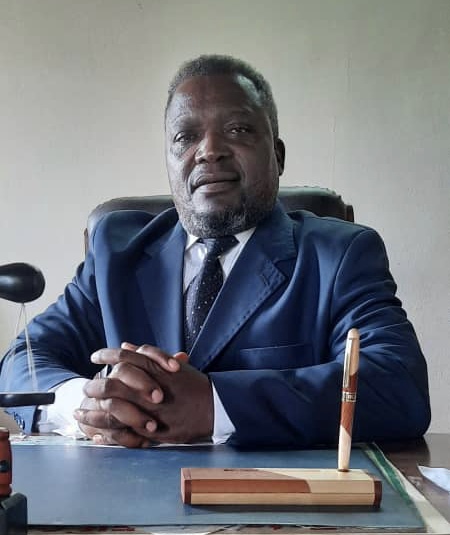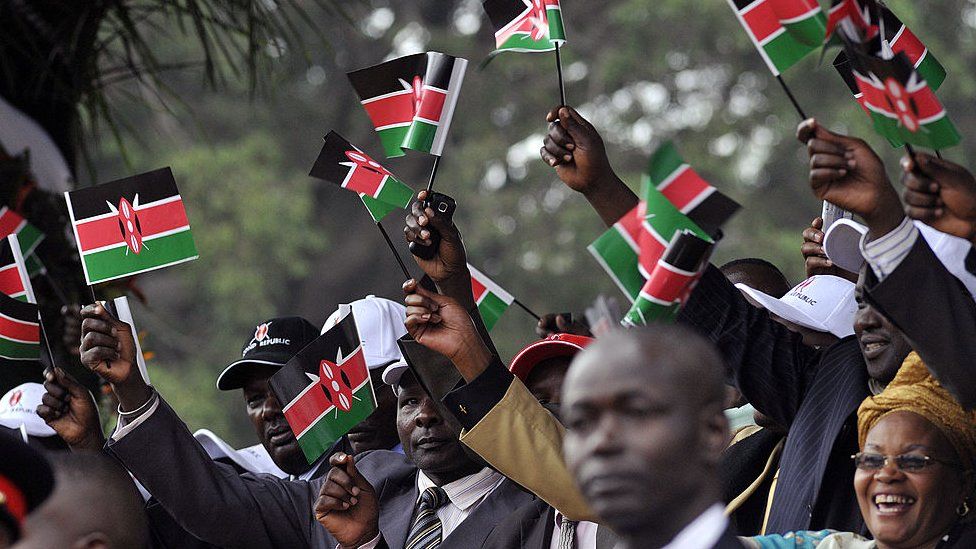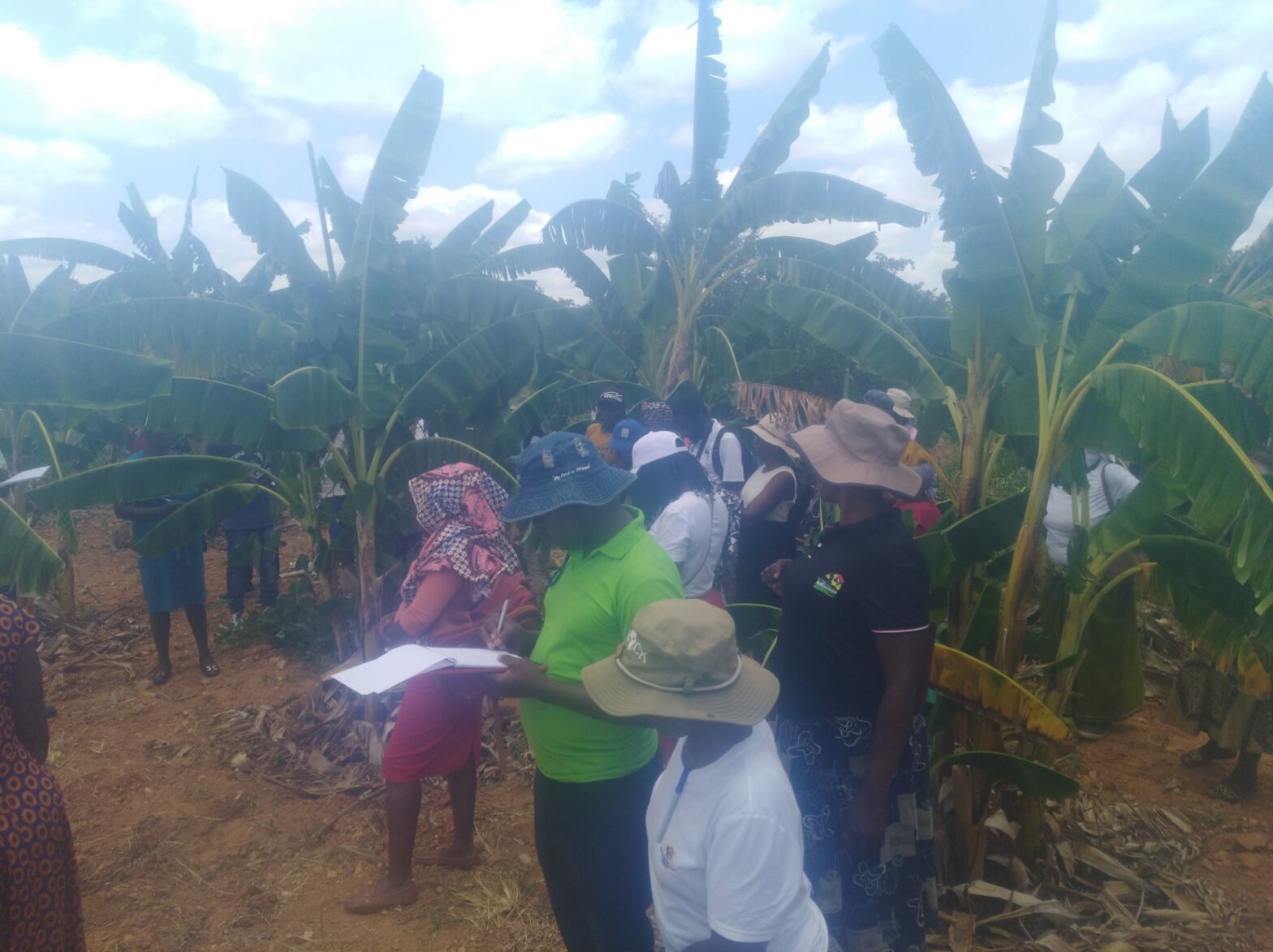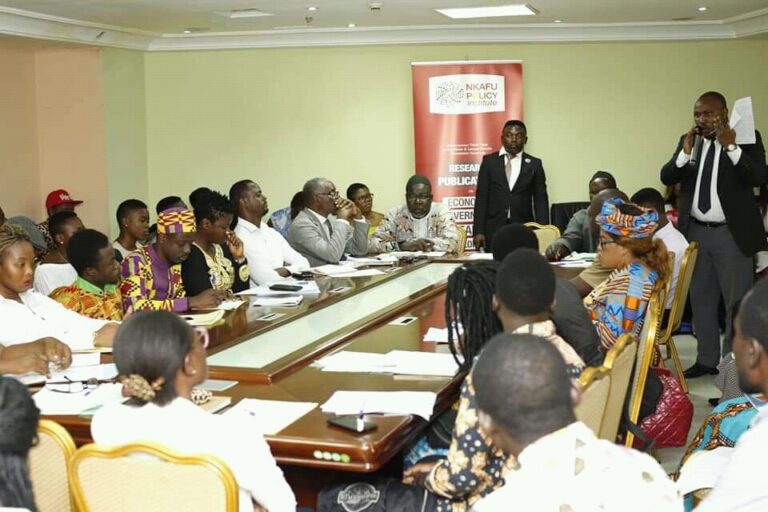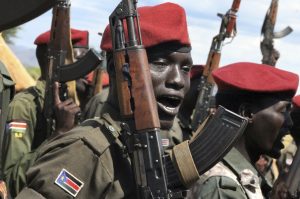 File - In this file photo taken Thursday, April 14, 2016, government soldiers follow orders to raise their guns during a military parade in Juba, South Sudan. Escalating violence in South Sudan is casting a light on Israel’s murky involvement in that raging conflict, with the government’s use of Israeli arms and surveillance equipment drawing criticism from human rights activists and a lawmaker who are demanding that Israel halt such transfers to the embattled African country. The scrutiny comes as Israel has been forging new ties with countries across Africa, hoping their support will counter Palestinian diplomatic offensives at the United Nations. (Justin Lynch, File/Associated Press)[/caption] JERUSALEM — Escalating violence in South Sudan is casting a light on Israel’s murky involvement in that conflict and raising questions about Prime Minister Benjamin Netanyahu’s new strategy of strengthening ties with African countries. Netanyahu has been forging alliances across Africa in an effort he says will help blunt Palestinian diplomatic initiatives against Israel at the United Nations. But critics says these new ties — illustrated by Netanyahu’s high-profile visit to several African countries in July — have come without regard for the human rights records of those allies. Such concerns have been magnified by Israel’s close ties to South Sudan, whose government has used Israeli arms and surveillance equipment to crack down on its opponents. Critics say Israel’s global arms export policies lack transparency and proper oversight, and ignore the receiving country’s intended use. “It is the role of the prime minister, the defense minister and the foreign minister to look out for Israel’s interests. But this has a limit: not at any cost and not with everyone,” said Tamar Zandberg, an Israeli opposition lawmaker who has filed a court appeal to halt Israeli sales of sensitive technology to South Sudan. Israel has long viewed South Sudan as an important ally and a counterweight to neighboring Sudan’s support for Islamic Palestinian militants. Israel was one of the first countries to recognize South Sudan’s independence in 2011, and South Sudanese leader Salva Kiir visited Israel months later. Since South Sudan descended into civil war in 2013, some 50,000 people have been killed and 2 million have been displaced. In July, hundreds died when fighting erupted in the capital, Juba. South Sudanese troops went on a nearly four-hour rampage at a hotel, killing a local journalist while forcing others to watch, raping several foreign women, and looting the compound, several witnesses told The Associated Press. Just days earlier, Netanyahu had traveled to four African countries — Uganda, Kenya, Rwanda and Ethiopia — in a visit meant to cultivate new allies in his diplomatic battle with the Palestinians. It was the first visit to sub-Saharan Africa by a sitting Israeli prime minister in nearly three decades. During the visit, he convened a summit with seven regional leaders, including Kiir — nearly all of whom have been criticized by rights watchdogs for alleged abuses. Kenyan President Uhuru Kenyatta has been charged by the International Criminal Court with crimes against humanity for his role in stoking ethnic violence, charges that were later withdrawn, with the prosecutor accusing Kenya of blocking her investigation. Ugandan President Yoweri Museveni, 71, has served for 30 years and is trying to change the constitution so he can effectively extend his rule for life. Rwandan President Paul Kagame has been dogged by allegations of human rights abuses in neighboring Democratic Republic of Congo and criticized by rights groups for being an authoritarian ruler. A U.N. report in January said Israeli surveillance equipment was being used by South Sudanese intelligence, allowing it to intercept communications in a “significantly enhanced” crackdown on government opponents. The report also found that an Israeli automatic rifle known as the Micro Galil is “present in larger numbers than before the outbreak of the conflict.” According to the report, Israel sold the rifles to Uganda in 2007, which transferred the weapons to South Sudan’s National Security Service in 2014. According to the report, Israel said it didn’t receive a request from Uganda for the transfer. Eitay Mack, an Israeli lawyer working with Zandberg, the opposition lawmaker, said weapons export licenses require knowledge of end users and mid users — meaning the transfer would either have been done with Israel’s knowledge or would have prompted an investigation into the offending company. He said no investigation was known to have been opened. The U.N. report said Israeli ACE rifles were used in a massacre that targeted Nuer citizens in Juba in 2013. Zandberg said Israel stopped sending firearms to South Sudan in 2013 but that export licenses for the surveillance equipment continue. The Israeli Defense Ministry did not respond to requests for comment. During the visit, he convened a summit with seven regional leaders, including Kiir — nearly all of whom have been criticized by rights watchdogs for alleged abuses. Kenyan President Uhuru Kenyatta has been charged by the International Criminal Court with crimes against humanity for his role in stoking ethnic violence, charges that were later withdrawn, with the prosecutor accusing Kenya of blocking her investigation. Ugandan President Yoweri Museveni, 71, has served for 30 years and is trying to change the constitution so he can effectively extend his rule for life. Rwandan President Paul Kagame has been dogged by allegations of human rights abuses in neighboring Democratic Republic of Congo and criticized by rights groups for being an authoritarian ruler. A U.N. report in January said Israeli surveillance equipment was being used by South Sudanese intelligence, allowing it to intercept communications in a “significantly enhanced” crackdown on government opponents. The report also found that an Israeli automatic rifle known as the Micro Galil is “present in larger numbers than before the outbreak of the conflict.” According to the report, Israel sold the rifles to Uganda in 2007, which transferred the weapons to South Sudan’s National Security Service in 2014. According to the report, Israel said it didn’t receive a request from Uganda for the transfer. Eitay Mack, an Israeli lawyer working with Zandberg, the opposition lawmaker, said weapons export licenses require knowledge of end users and mid users — meaning the transfer would either have been done with Israel’s knowledge or would have prompted an investigation into the offending company. He said no investigation was known to have been opened. The U.N. report said Israeli ACE rifles were used in a massacre that targeted Nuer citizens in Juba in 2013. Zandberg said Israel stopped sending firearms to South Sudan in 2013 but that export licenses for the surveillance equipment continue. The Israeli Defense Ministry did not respond to requests for comment. “A country that hands out these export licenses has to be accountable and to take responsibility for the (weapons’) final use,” Zandberg said. *Culled from Washington Post
File - In this file photo taken Thursday, April 14, 2016, government soldiers follow orders to raise their guns during a military parade in Juba, South Sudan. Escalating violence in South Sudan is casting a light on Israel’s murky involvement in that raging conflict, with the government’s use of Israeli arms and surveillance equipment drawing criticism from human rights activists and a lawmaker who are demanding that Israel halt such transfers to the embattled African country. The scrutiny comes as Israel has been forging new ties with countries across Africa, hoping their support will counter Palestinian diplomatic offensives at the United Nations. (Justin Lynch, File/Associated Press)[/caption] JERUSALEM — Escalating violence in South Sudan is casting a light on Israel’s murky involvement in that conflict and raising questions about Prime Minister Benjamin Netanyahu’s new strategy of strengthening ties with African countries. Netanyahu has been forging alliances across Africa in an effort he says will help blunt Palestinian diplomatic initiatives against Israel at the United Nations. But critics says these new ties — illustrated by Netanyahu’s high-profile visit to several African countries in July — have come without regard for the human rights records of those allies. Such concerns have been magnified by Israel’s close ties to South Sudan, whose government has used Israeli arms and surveillance equipment to crack down on its opponents. Critics say Israel’s global arms export policies lack transparency and proper oversight, and ignore the receiving country’s intended use. “It is the role of the prime minister, the defense minister and the foreign minister to look out for Israel’s interests. But this has a limit: not at any cost and not with everyone,” said Tamar Zandberg, an Israeli opposition lawmaker who has filed a court appeal to halt Israeli sales of sensitive technology to South Sudan. Israel has long viewed South Sudan as an important ally and a counterweight to neighboring Sudan’s support for Islamic Palestinian militants. Israel was one of the first countries to recognize South Sudan’s independence in 2011, and South Sudanese leader Salva Kiir visited Israel months later. Since South Sudan descended into civil war in 2013, some 50,000 people have been killed and 2 million have been displaced. In July, hundreds died when fighting erupted in the capital, Juba. South Sudanese troops went on a nearly four-hour rampage at a hotel, killing a local journalist while forcing others to watch, raping several foreign women, and looting the compound, several witnesses told The Associated Press. Just days earlier, Netanyahu had traveled to four African countries — Uganda, Kenya, Rwanda and Ethiopia — in a visit meant to cultivate new allies in his diplomatic battle with the Palestinians. It was the first visit to sub-Saharan Africa by a sitting Israeli prime minister in nearly three decades. During the visit, he convened a summit with seven regional leaders, including Kiir — nearly all of whom have been criticized by rights watchdogs for alleged abuses. Kenyan President Uhuru Kenyatta has been charged by the International Criminal Court with crimes against humanity for his role in stoking ethnic violence, charges that were later withdrawn, with the prosecutor accusing Kenya of blocking her investigation. Ugandan President Yoweri Museveni, 71, has served for 30 years and is trying to change the constitution so he can effectively extend his rule for life. Rwandan President Paul Kagame has been dogged by allegations of human rights abuses in neighboring Democratic Republic of Congo and criticized by rights groups for being an authoritarian ruler. A U.N. report in January said Israeli surveillance equipment was being used by South Sudanese intelligence, allowing it to intercept communications in a “significantly enhanced” crackdown on government opponents. The report also found that an Israeli automatic rifle known as the Micro Galil is “present in larger numbers than before the outbreak of the conflict.” According to the report, Israel sold the rifles to Uganda in 2007, which transferred the weapons to South Sudan’s National Security Service in 2014. According to the report, Israel said it didn’t receive a request from Uganda for the transfer. Eitay Mack, an Israeli lawyer working with Zandberg, the opposition lawmaker, said weapons export licenses require knowledge of end users and mid users — meaning the transfer would either have been done with Israel’s knowledge or would have prompted an investigation into the offending company. He said no investigation was known to have been opened. The U.N. report said Israeli ACE rifles were used in a massacre that targeted Nuer citizens in Juba in 2013. Zandberg said Israel stopped sending firearms to South Sudan in 2013 but that export licenses for the surveillance equipment continue. The Israeli Defense Ministry did not respond to requests for comment. During the visit, he convened a summit with seven regional leaders, including Kiir — nearly all of whom have been criticized by rights watchdogs for alleged abuses. Kenyan President Uhuru Kenyatta has been charged by the International Criminal Court with crimes against humanity for his role in stoking ethnic violence, charges that were later withdrawn, with the prosecutor accusing Kenya of blocking her investigation. Ugandan President Yoweri Museveni, 71, has served for 30 years and is trying to change the constitution so he can effectively extend his rule for life. Rwandan President Paul Kagame has been dogged by allegations of human rights abuses in neighboring Democratic Republic of Congo and criticized by rights groups for being an authoritarian ruler. A U.N. report in January said Israeli surveillance equipment was being used by South Sudanese intelligence, allowing it to intercept communications in a “significantly enhanced” crackdown on government opponents. The report also found that an Israeli automatic rifle known as the Micro Galil is “present in larger numbers than before the outbreak of the conflict.” According to the report, Israel sold the rifles to Uganda in 2007, which transferred the weapons to South Sudan’s National Security Service in 2014. According to the report, Israel said it didn’t receive a request from Uganda for the transfer. Eitay Mack, an Israeli lawyer working with Zandberg, the opposition lawmaker, said weapons export licenses require knowledge of end users and mid users — meaning the transfer would either have been done with Israel’s knowledge or would have prompted an investigation into the offending company. He said no investigation was known to have been opened. The U.N. report said Israeli ACE rifles were used in a massacre that targeted Nuer citizens in Juba in 2013. Zandberg said Israel stopped sending firearms to South Sudan in 2013 but that export licenses for the surveillance equipment continue. The Israeli Defense Ministry did not respond to requests for comment. “A country that hands out these export licenses has to be accountable and to take responsibility for the (weapons’) final use,” Zandberg said. *Culled from Washington PostWe will not Sell-Out by Phasing Out: African Negotiators Urged to Fight for Africa
For 2024: Should Africa De-Link From The West To Settle The Past Injustices?
The Shadow Masters: Cabals and the Whispered Governance of Nigeria
- Algeria
- Angola
- Benin
- Botswana
- Burkina Faso
- Burundi
- Cameroon
- Cape Verde
- Central African Republic
- Chad
- Comoros
- Congo Brazaville
- Congo RDC
- COTE D'IVOIRE
- Djibouti
- Egypt
- Equatorial Guinea
- Eritrea
- Ethiopia
- Gabon
- Gambia
- Ghana
- Guinea
- Guinea Bissau
- KENYA
- LESOTHO
- LIBERIA
- LIBYA
- MADASGAR
- MALAWI
- MALI
- MAURITANIA
- MAURITIUS
- MOROCCO
- MOZAMBIQUE
- NAMIBIA
- NIGER
- NIGERIA
- RWANDA
- SAHARAWI
- SAO TOME
- SENEGAL
- SIERRA LEONE
- SOMALIA
- SOUTH AFRICA
- SOUTH SUDAN
- SUDAN
- SWAZILAND
- TANZANIA
- TOGO
- TUNUSIA
- UGANDA
- ZAMBIA
- ZIMBABWE

